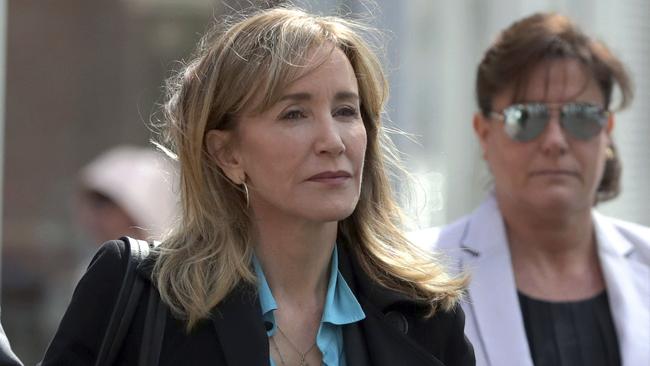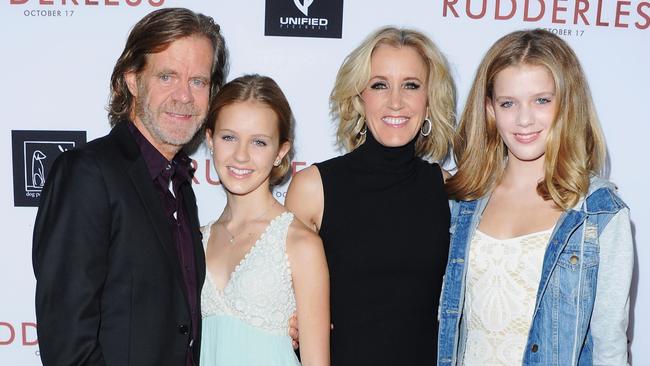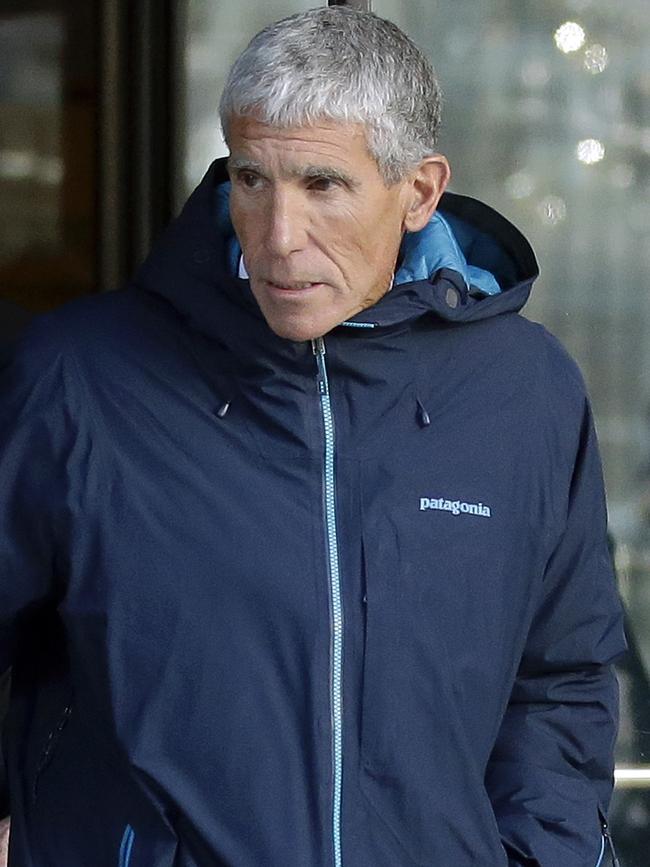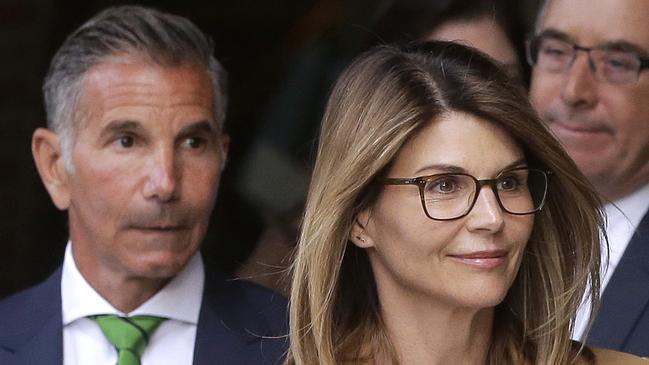America’s elite has kicked away the ladder
Those at the top will do anything to ensure their children are not overtaken.

This week Felicity Huffman, an American actress who made her name in the television comedy soap Desperate Housewives, pleaded guilty to paying and conspiring with a college admissions counsellor to cheat so that her daughter could get higher scores on a critical test and gain entrance to one of the top universities in the country.
Huffman says that she is “ashamed of the pain” she caused her daughter, who didn’t know about the scam, adding: “I want to apologise to the students who work hard every day to get into college.”
The desperate housewife, or desperate mother as perhaps we must now think of her, was one of 50 wealthy parents who are alleged to have committed fraud to give their already astonishingly privileged children an additional leg-up in the college process, either by getting someone clever to take their exams or by providing fake sporting credentials so they could gain entrance as an athlete.

When the FBI announced the initial results of its continuing investigation last month, much of the US revelled for a few days in an operatic schadenfreude. The idea of rich and famous people — actors, top lawyers, masters of the financial universe — being led off in handcuffs as part of Operation Varsity Blues, as it was teasingly named by the FBI, was a moment of pure pleasure for people tired of being lectured by Hollywood and other A-list types on their own deplorable mores and beliefs.
Education racket
But the story has a bigger social and cultural resonance. It underscores how far the country has come from its egalitarian ideals. The truth is that a lot of US higher education is a racket.
Extraordinary amounts of money change hands so the wealthy can cement their position in America’s elite cadres and also ensure their heirs and successors enjoy similar status. Throughout its history the US has been a land of greater opportunity for some than for others, but the degree of inequality now, and the options available to those at the top to extend and increase that inequality, have never been greater.

In their defence, there are many outstanding colleges and universities that provide world-class education to needy students. Because of their epic resources, many of these colleges can afford scholarships to educate the poorest young Americans for no cost. It’s a model of what can be achieved with philanthropy and quality education. But the flip side is that the college process is designed as much as it ever was to ensure the plutocrats get their proper places.
Operation Varsity Blues
The first reaction of many to Operation Varsity Blues was puzzlement. Why would someone pay a lot of money to get their dim child in through the side door of a great university, when everyone knows that if you stump up enough you can go through the main gate?
The best schools are unofficially known to have a tariff. Put your name on a hall of residence and your son is guaranteed a spot. But it goes much further. Most top colleges in America keep places aside — up to a fifth in some cases — for “legacy” students.
If your mother or father went to Princeton your chances of getting in are about five times the chance of someone not so fortunate. If both parents went there, your chances just got even better, which adds an incentive for the already rich and privileged to cuff themselves to someone from the same background.
There are of course attempts to broaden the gene pool. Colleges practise affirmative action so students from “under-represented minorities” have an improved chance.
But this too can have perverse and unfair consequences.
Harvard is being sued by the government on the grounds that its admissions standards discriminate against Asian and Asian-American students, who claim that their numbers are arbitrarily capped to admit lower-scoring African-American and wealthy white students.
Rising inequality
That the entrance system is unfair is not new, but two things have changed in the past 25 years that mean this unequal access has greater consequence. First, the importance of a college degree in improving access to higher-paid jobs. Getting a degree, especially a degree from one of the top 30 or so colleges, is increasingly critical to enhanced prospects in the job market. Second, inequality has risen dramatically. So even those who achieve some upward movement from, say, a bachelor’s degree are not rising as far up the income ladder relative to those at the top as was the case 50 years ago. A study by the Federal Reserve Bank of Minneapolis a few years ago found that in the past 30 years there had been a sharp decline in intergenerational socio-economic mobility.

Last week, Ray Dalio, a hedge fund billionaire, whose alma mater is the lesser-known Long Island University in New York, warned that the US was facing a fundamental crisis. “The American Dream is lost,” he wrote on LinkedIn. Social mobility has dropped precipitously. The percentage of 30-year-olds who earn more than their parents has declined from 90 per cent 50 years ago to less than 50 per cent.
Given how a good university degree can change life prospects, it’s no wonder Desperate Housewives will stop at nothing to get their offspring into the best colleges. But for millions of genuinely desperate housewives, nurses, farmers, shop assistants and others, routes to success, legal or illegal, for themselves and their children are increasingly tortuous and narrow.
The Times
